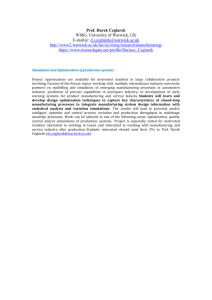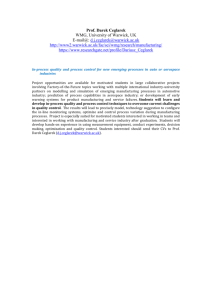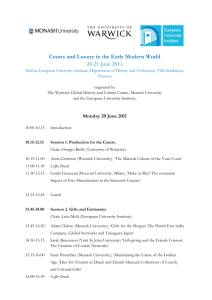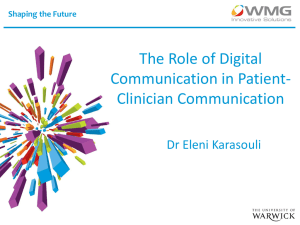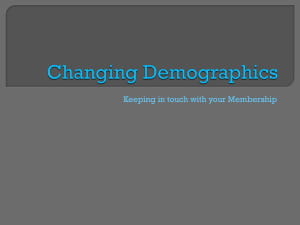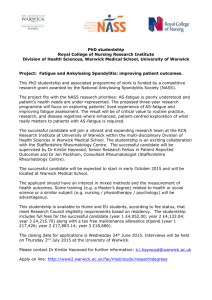Q: what will I learn on the Global Sustainable Development Core
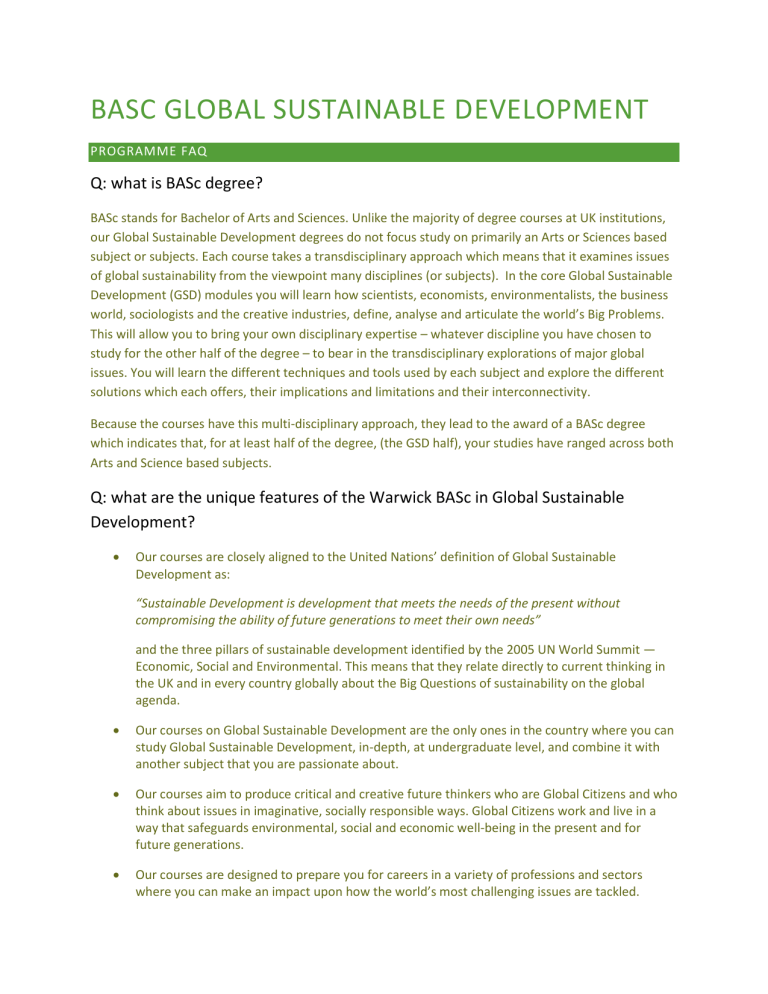
BASC GLOBAL SUSTAINABLE DEVELOPMENT
PROGRAMME FAQ
Q: what is BASc degree?
BASc stands for Bachelor of Arts and Sciences. Unlike the majority of degree courses at UK institutions, our Global Sustainable Development degrees do not focus study on primarily an Arts or Sciences based subject or subjects. Each course takes a transdisciplinary approach which means that it examines issues of global sustainability from the viewpoint many disciplines (or subjects). In the core Global Sustainable
Development (GSD) modules you will learn how scientists, economists, environmentalists, the business world, sociologists and the creative industries, define, analyse and articulate the world’s Big Problems.
This will allow you to bring your own disciplinary expertise – whatever discipline you have chosen to study for the other half of the degree – to bear in the transdisciplinary explorations of major global issues. You will learn the different techniques and tools used by each subject and explore the different solutions which each offers, their implications and limitations and their interconnectivity.
Because the courses have this multi-disciplinary approach, they lead to the award of a BASc degree which indicates that, for at least half of the degree, (the GSD half), your studies have ranged across both
Arts and Science based subjects.
Q: what are the unique features of the Warwick BASc in Global Sustainable
Development?
Our courses are closely aligned to the United Nations’ definition of Global Sustainable
Development as:
“Sustainable Development is development that meets the needs of the present without compromising the ability of future generations to meet their own needs” and the three pillars of sustainable development identified by the 2005 UN World Summit —
Economic, Social and Environmental. This means that they relate directly to current thinking in the UK and in every country globally about the Big Questions of sustainability on the global agenda.
Our courses on Global Sustainable Development are the only ones in the country where you can study Global Sustainable Development, in-depth, at undergraduate level, and combine it with another subject that you are passionate about.
Our courses aim to produce critical and creative future thinkers who are Global Citizens and who think about issues in imaginative, socially responsible ways. Global Citizens work and live in a way that safeguards environmental, social and economic well-being in the present and for future generations.
Our courses are designed to prepare you for careers in a variety of professions and sectors where you can make an impact upon how the world’s most challenging issues are tackled.
Our courses give you the opportunity to experience a different culture by spending time studying abroad and to experience the working world through a work placement.
Q: what is the difference between “Sustainability” and “Sustainable
Development”?
"Sustainable development is the pathway to sustainability".
In order to achieve sustainability, you have to develop in a sustainable way. Sustainable Development is therefore a process which involves organizing the resources required in order to survive in such a way that a state of sustainability results.
Such a state of sustainability prevails when:
The world is living within the means of its natural resources i.e. that resources are used at a rate which does not irrevocably diminish them but at a pace that fosters their continual supply
(environmental sustainability)
Countries produce operational profits which mean that they can continue to function (economic sustainability)
People experience good social well- being – i.e. they are content and feel that they have the freedom to take responsibility for their own lives (social sustainability).
Sustainable development is the organizing principle for sustaining finite resources necessary to provide for the needs of future generations of life on the planet. It is a process that envisions a desirable future state for human societies in which living conditions and resource-use continue to meet human needs without undermining the "integrity, stability and beauty" of natural biotic systems.
Q: what should I write in the UCAS personal statement?
Because ours is a unique degree we understand that you will need to write a personal statement suitable for five different courses. For this reason we do not expect you to write anything about Global
Sustainable Development in your UCAS form. In the UCAS form we are looking for a demonstration of your academic passion, and a sense of what motivates you. Once we receive your application, we will be asking you to submit a 300-word statement to globalsustainabledev@warwick.ac.uk
in which you will be asked to outline why you are interested in the GSD degree.
Q: I hold an IB, International Baccalaureate, qualification. Am I prepared for this degree?
If you hold an IB qualification you will be exceptionally well-positioned to undertake this degree, and you will find that many of the skills that you have been trained in will be utilised, enhanced and transformed on our programme.
Both the IB and the BASc Global Sustainable Development follow particular forms of teaching methods such as
Inquiry-based learning
Problem-based learning
Constructivism
Facilitating metacognition
Cognitive apprenticeship
Collaborative learning
Like the IB, our BAScs in Global Sustainable Development encourage you to build on your existing knowledge as you examine complex problems before taking principled action.
“Principled action means making responsible choices, sometimes including decisions not to act.
Individuals, organizations and communities can engage in principled action when they explore the ethical dimensions of personal and global challenges.” (IBO 2013: 4)
Q: what will I learn on the Global Sustainable Development Core Modules?
Each year of the course you will spend half of your time studying core modules in Global Sustainable
Development (GSD) alongside your fellow GSD students. In these modules you will have the opportunity to examine a range of local, national and global problems which pose issues of sustainability. You will examine these questions from the economic, social and environmental perspectives. Experts in those fields will teach you the methods and techniques which they employ to investigate these questions. You will learn how to evaluate the evidence obtained, draw conclusions from it, make critical judgments and develop solutions.
Here is an overview of the topics that you study on this degree. You can find more detailed information on the Study Pages. In your first year, you get the chance to apply the techniques and skills learned in the year’s core modules to a real life case which is of concern in the area local to the University. You will work with your fellow GSD students to examine the issues, formulate hypotheses and test them using the most appropriate methods, to undertake research including archival searches, interviews and focus groups, before drawing your findings together in a report which makes recommendations concerning a way forward.
In your core second year GSD modules you are introduced to the key debates surrounding health and the representation of bodies in contemporary culture and the production and distribution of food.
Please note that if you choose to go abroad for the second and third terms of your second year, instead of taking the core module on Food you will take relevant modules offered by the overseas University.
In the third year, you examine the sustainability issues surrounding Work and Energy.
You will bring together your knowledge, ideas and conclusions in a Final Year Dissertation focusing on an issue or question which is of particular concern or interest to you from a Global Sustainable
Development point of view.
During each year of the course, you will be able to bring your specialist knowledge about your chosen academic discipline acquired in the other half of the course to bear on your exploration of the issues considered in the GSD half of the course. In your chosen subject you will immerse yourself in your particular discipline and acquire academic grounding that is on a par with any student studying for a combined degree.
Q: tell me more about the certificates
Our course provides the opportunity for you to gain a number of certificates which testify to your attainment of professional skills that will enhance your employability. Each certificate involves attendance at workshops over either a five or ten week period. You will produce an individual written assignment, journal or eportfolio which will be assessed.
Certificate of Digital Literacy – 90% of new jobs require excellent digital skills. You will be encouraged to think through the capabilities you need to live, learn and work in an increasingly digital society. You will learn about different digital media platforms and how to manage a professional online identity.
Certificates in Coaching Conversations and Coaching Relationships – These two certificates aim to develop your coaching and leadership skills through practical exercises and reflection.
Certificate of Communication Across Cultures – You will use the experience of your work placement to reflect upon the different styles of communication adopted for different professional contexts (or cultures) and will gain an understanding of the reasons for those different styles and their appropriateness . You will reflect on the relationship between professional culture and communication and the implications for your ongoing study and future career.
Q: Are the certificates compulsory?
The certificates are optional, you are not required to do them. We expect that typically our students will wish to do one or two certificates during their time with us, but there is absolutely no obligation to do them: the certificates are simply a unique opportunity not offered elsewhere to acquire supplementary skills and attributes which employers will find extremely attractive.
Q: Will there be opportunities to practice sustainable development?
Yes. The University of Warwick operates the Green Steps Programme.
Pioneered by Monash University in Australia (with whom Warwick has an institutional partnership) this scheme offers students the opportunity to get involved in real sustainability projects right here on campus. You’ll be able to learn how to undertake sustainability audits which measure environmental impacts and engage in projects designed to stimulate behaviour change aimed at building a sustainable campus for future generations to enjoy.
Q: what will my degree title be?
The title of your degree will be the same as the title of the course for which you applied through UCAS i.e.
BASc in Theatre and Performance Studies and Global Sustainable Development.
Q: what is the HEAR?
The HEAR is the ‘Higher Education Achievement Report’. It is an electronic document issued to you at the end of your studies which records all your academic and non-academic achievements at Warwick, as verified by the University. It includes information about achievements such as volunteering and prizes awarded as well as information about module marks and the Degree Classification awarded. It will normally be available in mid/late August after your graduation ceremony in July. The document is made available online through a third-party and you have to register with that third party in order to be able to gain access to your HEAR. You will be given information about how to do this at the appropriate time.
You can show your HEAR to potential employers in order to prove your attainments.
Q: how much contact time will I have with Warwick staff each week?
This will depend upon the particular joint degree course you have chosen and the optional modules which you select from those available. Each module has a set minimum number of timetabled hours that you will be expected to attend, but these differ depending upon the way in which each module has been designed. In each year, you will take Global Sustainable Development Core Modules each of which typically involves attendance at one x 1 hour lecture per week plus a seminar or workshop lasting for 1 hour per week. Of course, the amount of contact time may be higher than that, depending on how many of the optional certificates you intend to do.
In your first year, you take four Global Sustainable Development (GSD) Core Modules (2 per term) so can expect to be required to attend formal timetabled sessions for approximately 4 hours per week for your Global Sustainable Development modules. This represents half of your workload. Alongside this – and representing the for the other half of your workload - you will take modules in your chosen joint degree discipline (Business, Economics, History, Life Sciences, Philosophy, Sociology, Theatre and
Performance Studies) which may involve more or less formal teaching time per week than the GSDs
Core Modules. You can find information about minimum number of timetabled hours for these modules on departmental websites. The same 50/50 split between core GSD modules and modules in your chosen joint degree subject prevails in your second and final years.
Generally speaking, (and to give you an idea of your workload!), you should expect to spend 10 hours of study (timetabled, non-timetabled contact with tutors and private study or self-directed study) per unit of credit. Since undergraduate bachelor’s degrees typically comprise 360 credits, this means that over the standard academic year, you will be engaged in approximately 3600 hours of study.
Q: what type of support is available to help me decide on a career?
Warwick’s Centre for Student Careers and Skills offers a range of services designed to support you as you think about and plan your future. These range from one to one appointments with a dedicated careers adviser who can provide advice on developing your c.v. and making applications, careers fairs, employer presentations, mock job interviews, providing information about opportunities to help you get work experience (e.g. through volunteering schemes or internship programmes both in the U.K. and abroad), and access to relevant networks and workshops to help you to acquire and hone the skills which employers value. Take a look at the website for more details of the services available: http://www2.warwick.ac.uk/services/scs
Q: What jobs can I do with a BASc in Global Sustainable Development?
A degree in Sustainable Development from one of the UK’s top universities will set you up to compete for some of the most competitive jobs, in a variety of public and private sectors. Warwick University graduates are targeted by employers who value their creativity, the depth of their knowledge and their ability to adapt to the professional demands of the work environment.
In recent years, the demand for graduates with expertise in Sustainable Development has increased dramatically, to the extent that specialist recruitment agencies have been set up seeking graduates who can take on jobs in sectors such as: Transport, Environment, Corporate Sustainability, Charities etc… In fact, the Institute of Environmental Management and Assessment maintains that:
Even industries that were not previously aligned with environmental principles are now required to employ environmentally knowledgeable professionals and therefore the profession is on the move, making its way to the centre of organisations’ business plans. That means, more jobs being created, opening up opportunities for those with an interest in the environment
Our Global Sustainable Development courses will equip you with a range of transferrable and practical skills that are valued by employers including those of: analysis and problem solving, critical thinking, communication, organization, team working.
These and other skills you’ll attain, evidenced by professional certificates, are highly valued by public and private sector employers in the UK and globally. You’ll have the opportunity to experience the working world through a work placement. At the end of the degree, you will be uniquely prepared to explore careers in a variety of professions and we will support you as you decide what you want to do next. Careers may include project management, corporate governance, resource management, environmental planning and consultancy in a wide range of industries including construction, transport, energy, engineering, communications, and for a wide range of organisations including local authorities, charitable trusts, the Environment Agency and national government departments such as Department for the Environment and Rural Affairs in the UK as well as overseas governments.
Q: what are the entry requirements for the course?
The entry requirements for each of the joint degree courses are:
Theatre and Performance Studies and Global Sustainable Development
A level: AAB plus B in GCSE Maths and B in GCSE English. Although no specific A level subjects are required, candidates with evident interest in performance studies will be given priority. IB score of 36.
We welcome applications from students with other internationally recognised qualifications. For more information please visit the international entry requirements page.
Q: will there be an interview?
We do not typically interview applicants. Offers are made based on your predicted and actual grades, along with your personal statements. Occasionally, some applicants may be interviewed, for example candidates returning to study or those with non-standard qualifications.
For this degree, attendance at a post-offer open days is a particularly important part of the admissions process: this is a new degree, and it’s important that you and your parents (if you wish) get to know us and what your life at Warwick would be like; if you live abroad we will be available through live chats, or through in-country visits by our Colleagues in the International Office.
Q: can I learn a new language or continue study of a language on this course?
Warwick’s Language Centre offers a number of language learning opportunities. You can choose to study Arabic, Chinese, French, German, Japanese, Portuguese, Russian or Spanish. Courses are offered at a range of levels from beginners to advanced, depending on the language, and there are accelerated options for those who wish to develop their language skills at a faster pace. However, because the structure of your degree requires you split your study 50/50 between core GSD modules and modules in your joint degree discipline, there is no space for a language module to be taken as part of your degree
(unless, exceptionally, you are given special permission by your tutors to take a particular language that is related to your joint degree discipline or focus of GSD study). Therefore, if you decide that you want to learn a language, this will need to be separate to your degree.
Q: where can I go if I choose to go abroad in the second year?
In your second year you may opt to spend the second and third terms studying at our partner institution, The University of Monash, Melbourne, Australia. You may be based at either the University’s
Melbourne campus or at its campus in Malaysia (located at Bandar Sunway, approximately 18km from
Kuala Lumpur).
Monash University is home to the Monash Sustainability Institute; a world leading centre for multi- disciplinary research into and education for sustainability. The Institute brings together scientists, lawyers, economists, psychologists, biologists, engineers, health professionals and training experts to tackle the globe’s biggest problems, including climate change, biodiversity and health, poverty, carbon emissions and water management; finding solutions that aim to “envisage and create the world of the future”. The Institute has recently been selected by the UN Sustainable Development Solutions Network to lead solutions on global sustainable development in the Australia/Pacific region.
Warwick is in partnership with many other Universities and Higher Education institutions around the world and it may be possible for you to spend time in your second year studying at one of those institutions, provided that it offers relevant module options related to Global Sustainable Development.
Q: do I have to apply to go abroad?
Yes. Places available are limited and therefore there is a competitive application and selection procedure. If you are interested in studying abroad, you will need to apply during the third term of your first year. More information about the process will be provided to you nearer the time.
Q: what will I study when I’m abroad?
You must continue to study modules related to Global Sustainable Development and your joint degree subject. You are free to study whichever modules or courses offered by the partner institution interest you most and are relevant to your course provided that you fulfil the academic requirements. Your
Personal Tutor at Warwick will be able to guide you in your choice and will need to approve your final selections. The marks which you obtain from your study at Monash will contribute to your overall degree classification.
Q: how much will it cost to go abroad for part of the second year of the course?
You will continue to pay full fees to Warwick for the two terms that you are abroad. Please see the
Student Finance website for more information.
But you pay nothing for tuition to your host institution abroad.
You will have to find money to pay for your travel to and from the overseas country and you will need to meet your living costs whilst you are there (as you would have to do if you stayed at Warwick).
In addition, you will need to factor in the costs of the compulsory student visa and health insurance that is required whether you are going to Melbourne or Malaysia and you may wish to take out travel insurance.
The Study Abroad Team in Warwick’s International Office will be able to advise further on these matters.
The intercalated terms variant of the Global Sustainable Development courses is optional rather than compulsory and is not part of the ERASMUS scheme which means that you will not be eligible for financial support in the form of travel grants or maintenance loans. However, should you encounter severe unforeseen financial difficulties whilst you are abroad, you may apply to Warwick for a loan of up to £500 to help you out. The loan must be repaid at the start of the term when you next attend Warwick.
Q: do I still have to pay fees to Warwick if I’m abroad?
Yes, because you will still be in receipt of services from Warwick whilst you are abroad. For example, you will continue to receive the advice and support of your Personal Tutor whilst you are abroad and he/she
will have to approve the modules which you choose to study whilst you are abroad in order to ensure that they fit in with your Warwick course. You will continue to pay full fees to Warwick whilst you are abroad – but you will not pay any tuition fees to Monash University.
Q: where will I live if I go abroad?
Monash University will be able to organise your accommodation for you, but you will still need to apply for it. If you are to be based in Melbourne, you may choose to live either on or off campus. If you plan to study at Monash Malaysia you’ll be accommodated in the Sunway Monash Residence, a mini-city of students from all over the world. It is three minutes’ walk from campus.
There’s more information about studying at Monash as an international student on the University’s website.
Q: do I need a visa to study abroad?
Yes. You will need to arrange a Student Visa in order to study at Monash . It is your responsibility to have a valid passport which will cover the time of your stay abroad, and to acquire a visa in time to travel .
Q: what support and contact will I have with Warwick when I’m abroad?
Whilst you are abroad, you will be required to maintain regular contact with Warwick staff as part of your compliance with our Student Attendance and Monitoring Scheme. Your principal point of contact will be your Warwick Personal Tutor who will be required to approve the courses which you study whilst abroad and will also be available to support you throughout your study abroad experience, particularly if you encounter any issues or have any concerns about your progress. You will maintain regular online contact with Warwick and Warwick tutors may even visit you whilst you are overseas. Towards the end of the year abroad, you will need to advise us on your choice of modules for your final year of study back at Warwick.
Q: how will I be assessed?
We have devised an assessment strategy that allows you to develop your expertise in addressing problems using a variety of perspectives from the Arts, Sciences and Social Sciences. We will teach you to use quantitative and qualitative methods of research, and this will equip you with a solid foundation from which you can approach contemporary problems critically and creatively. Consequently, the range of assessments on this degree combines the traditional (essays and written examinations) with the innovative (creative projects, portfolios and performance).
During the course you will produce short critical essays, analyses and written reviews – some of which may be in the form of contributions to online blogs and forums - research papers, reflective journals and portfolios and oral presentations. You will be expected to present your work in a public forum such as the British Conference for Undergraduate Research or the International Conference of Undergraduate
Research. You will contribute to group projects and deliver extended pieces of writing (for the final year
Dissertation) as well as sit mid and end of year short tests and traditional end of year written examinations.
Q: will I have to sit exams?
Yes. Some of the Global Sustainable Development Core Modules require you to sit an exam as well as traditional written essays/project portfolios/group presentations. The assessment methods for your joint degree subject may also require you to sit exams.
Q: what is the ratio of coursework to exams on this course?
Theatre and Performance Studies and Global Sustainable Development
In the first year, the ratio of exams to coursework for the Global Sustainable Development Core Modules is 30% (exam) 70% (coursework). In the second year, the ratio is 50% (exam) 50% (coursework). In the final year, the ratio is 33% (exam) and 66% (coursework).
In terms of your modules in Theatre and Performance Studies, the ratio of exams to coursework in the first year is 50:50. Please note that some exams in Theatre are of a practical nature. In the second and final years of the course, you have a choice of Theatre Studies modules with varying assessment methods so can design your assessment to suit your own strengths.
Please note that if you choose to spend part of your second year studying abroad, these ratios will be affected by your choice of courses from those available at Monash University.
Q: where can I get more information?
You can get more information about the BASc Global Sustainable Development joint degrees on the course information pages at:
If you have a specific question about the course, you can contact the Global Sustainable Development
Team at: globalsustainabledev@warwick.ac.uk
You can find out more about the Warwick Experience on our Campus Life web pages where you can get information about the wide range of clubs and societies operating at the University, campus accommodation, part time working and volunteering, the Students’ Union and fees and funding: http://www2.warwick.ac.uk/study/undergraduate/campuslife/

